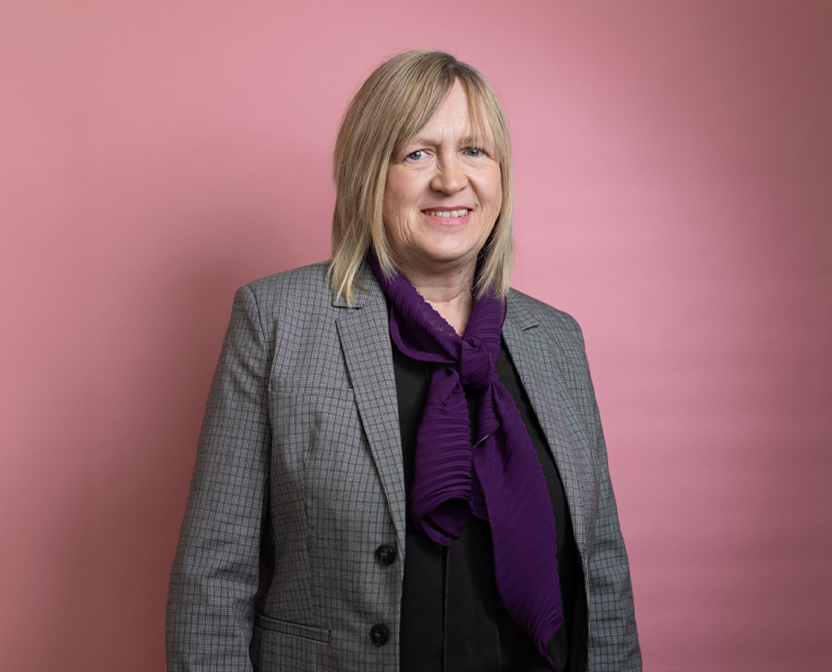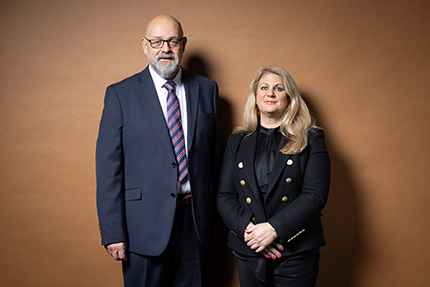Do I have to share my Pension when I Divorce?
A particular issue in financial settlements that often causes concern is what happens to the Pension or Pensions.
The court has the power to share out income, property, pensions savings and liabilities in a way that meets the needs of yourself, your children and your spouse.
The Court can make Pension Sharing Orders, dividing the Pensions between you and your spouse. How that is done can be complicated and not necessarily equal.
The starting point is to obtain a valuation known as the cash equivalent value (“CEV”), which will be calculated by the pension scheme providers. In some cases, it might be appropriate to share only the capital value of the pensions, but it is likely the pensions will be divided on a percentage share, which will produce equality of income for both parties in retirement. This can produce a result where the percentage division is unequal, but the result is equality of income.
How this percentage is worked out is the task of an expert Pension Actuary and is called a Pension Actuary Report. The Actuary’s task is to consider what income returns are likely on the different pensions, considering a whole host of factors such as the type of pension scheme, the projected income from each scheme, ages and expected retirement dates amongst many others. Reports are usually commissioned on a joint basis with each party paying half of the fee.
Do I need a pension actuary report?
No, a Pension Actuary Report is not required in every case. There are some situations where a report is not required:
- Young parties. If the parties who are divorcing are under 40, the Court may consider it unnecessary for a report.
- Modest value pensions. Again, the Court may determine that it is not relevant to have a costly report and will deal with pension sharing based on capital value.
- Like the point above, if the pension is of very little value then it would be rare to have such a pension report.
In most cases where the pension provision is considerable, or the pension is one based on “defined Benefits” then generally, yes, obtain a report. Most pensions fall into 2 categories:
- Direct contribution: Money payment into the scheme, with valuation based on the monetary contribution.
- Defined Benefit scheme: Based on the value of the benefits the scheme provides, many occupational schemes fall into this bracket. The true value of these schemes is not necessarily reflected in the capital value.
What if I had my pension before I was married?
Unfortunately, this is again complicated. Whether your spouse will be entitled to half of your pension will depend on several factors including:
- If he or she has his/her own pension fund which needs adding to the pot before equalising.
- Whether the entirety of the pension built up during the marriage (including prior cohabitation) or if there is any pre-marriage or post-separation accrual.
- Whether the equalisation of the pensions meet the parties’ needs.
- The age of the parties, including whether they are of a similar age and how far away they are from retirement.
The last question is often asked, particularly by those who have married for a second time. The contention being “I had my pension before we met” and “surely it should be ringfenced against any claim”. There was no set rule, and different Courts, even different Judges in the same Court, were interpreting pension sharing legislation and its impact on Section 25 of the Matrimonial Causes Act 1973, Section 25(2), differently. What was common is that all pensions, no matter when they accrued, are disclosable and their values are disclosable.
A report in 2019 tried to give guidance to the public, Judges, and lawyers as to the treatment of pensions in divorce, amongst other matters. That report was updated in December 2023. It is called A Guide to the Treatment of Pensions on Divorce. It is clear from that guidance that before consideration of pensions accrued pre-marriage, often referred to as non-marital asset, that needs are considered first. The report states, and it is quoted, “In a case driven by needs, any pension asset acquired pre-marriage, including seamless cohabitation to marriage, or post separation, is (just like any other class of asset) likely to be relevant notwithstanding it is non-matrimonial nature”. In layman terms, this guidance suggests that Judges should look at the needs and ignore the pre and post marital nature of any contribution accrued in the pension. In most cases, needs will see pensions shared between the parties.
Are there any exceptions?
Yes and no. Needs are always an issue for the Court to determine. However, in the case of a short, childless marriage it is still likely that there will be a departure from equal sharing.
Can you share a pension that is already in payment?
The simple answer is yes, but it depends on the type of pension.
A pension in payment is an asset as it is an income source. A Pension Actuary can place a value on a pension in payment, and the court can either share the pension by making a pension sharing order or share the pension income by making a spousal maintenance order or other order, maybe adjusting the capital division to reflect this.
Types of Pension Orders
A Pension sharing order will divide a percentage of the pension fund now and transfer it into a separate fund in the other spouse’s name.
A pension attachment order earmarks an amount of the pension pot which will then be paid out to the other spouse when the pension comes into payment at retirement. This is not commonly done for a variety of reasons.
Mechanics of a Pension Sharing Order
A draft Pension Sharing Order is sent to the pension provider for them to approve. If there are no objections, the Pension Sharing Order, along with your Financial Remedy Order and a Statement of information form is sent to the Court for a Judge to approve.
A Pension Sharing Order is only effective following the date 28 days after the date of the Pension Sharing Order or the date of Decree Absolute, whichever is the latest.
The Pension Sharing Order, along with the Financial Remedy Order and the Final Order (previously known as the Decree Absolute) is then sent to the pension trustees for implementation. The Pension provider usually charges for this, and who pays is usually stated in the order.
The implementation is by way of a debit against the paying pension and a credit to the receiving pension; it is not cash.
The receiving party will be required to place their pension credit in a new pension scheme and would be strongly advised to consult with a financial advisor before doing so. Experience shows that the implementation process can extend beyond the 4 months, especially if you as the receiving party haven’t set up a pension product to receive the pension credit.
What about state pensions?
Your basic state pension can’t be shared if your marriage or civil partnership ends. You will receive it all. This is the same with the post-2016 New State Pension.
The Additional State Pension can be ordered to be shared by the court between the couple.
You may be able to use the National Insurance contribution record of your ex-partner to increase your basic state pension. This won’t take away from your ex-partner’s basic State Pension either.
You can obtain a state pension forecast at https://www.gov.uk/check-state-pension
You can also check your national insurance record at https://www.gov.uk/check-national-insurance-record
Does the Pension have to be shared?
Yes, but not necessarily by way of Pension Sharing Order. You may be able to offset.
This means that one person will retain their pension to achieve a fair outcome, and the other spouse or civil partner will retain more of the non-pension assets such property or capital savings. A Pension Actuary can be asked to give a value to the offsetting.
Pension division or offsetting is part of the overall financial asset division following a divorce. It is not an isolated issue. Early advice and an Actuary Valuation report (if necessary) are essential to understand how pensions and their division fit into the overall financial settlement.
This can be a very complex area of the divorce process, and we can offer Clear, Precise Advice in plain English. Get in touch with our Divorce and Finances expert Mark Mosley for more information on 01772 555 176 or email markmosley@vslaw.co.uk
Meet our team of experts
Frequently asked questions
Family Law Client Testimonials
Clear Advice Feels Better
Divorce Client Review
Mr Mark Mosley has a wonderful manner ensuring that I understood all stages of the process. He was always supportive. I wish to take this opportunity to thank him, Mark is without doubt the person I would recommend to anyone going through a Divorce.

Family Law Client Thank you
Thank you so much Val you have helped me through this and I feel more confident for tomorrow whatever the outcome is.

Family Law Client Testimonial
It’s been a long year with all this so I’d like to also say thank you for all you and Martin have helped me and the girls it’s massively appreciated.















